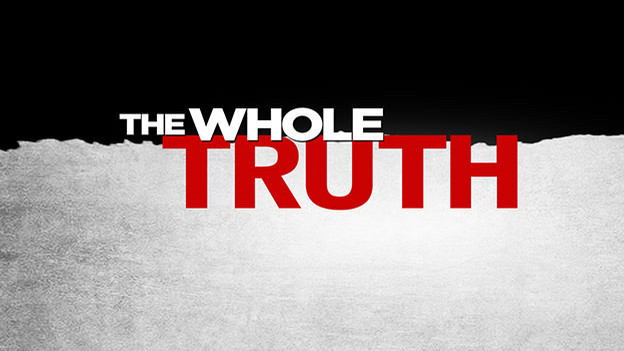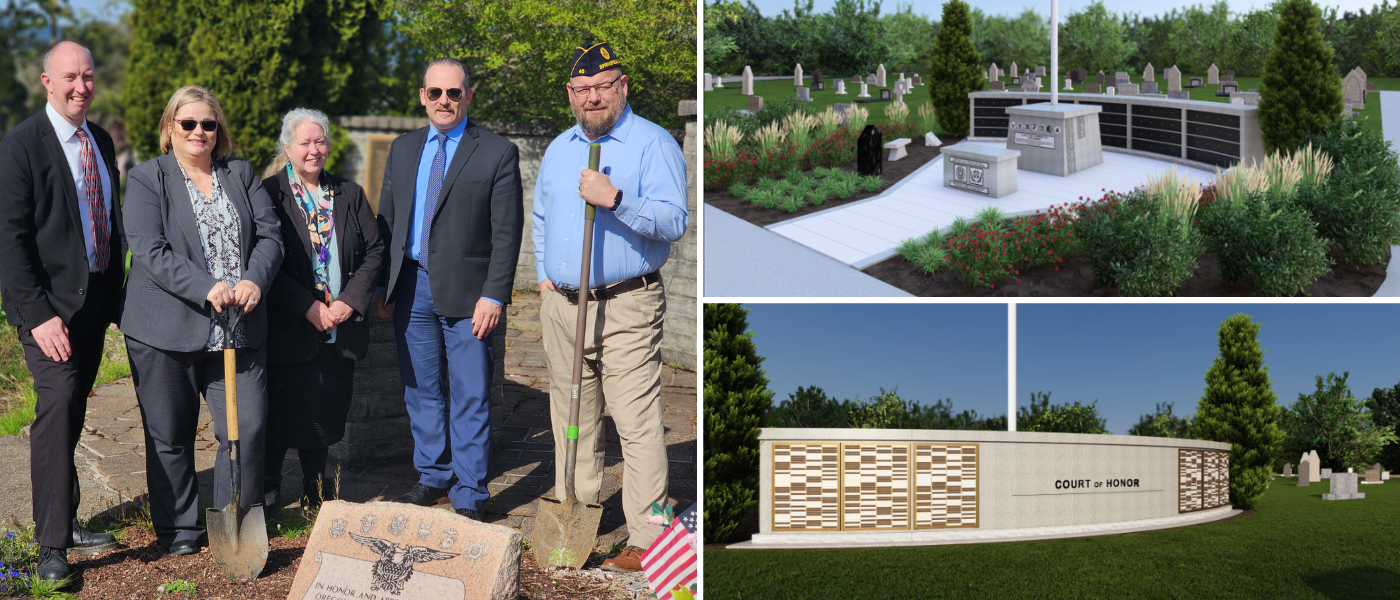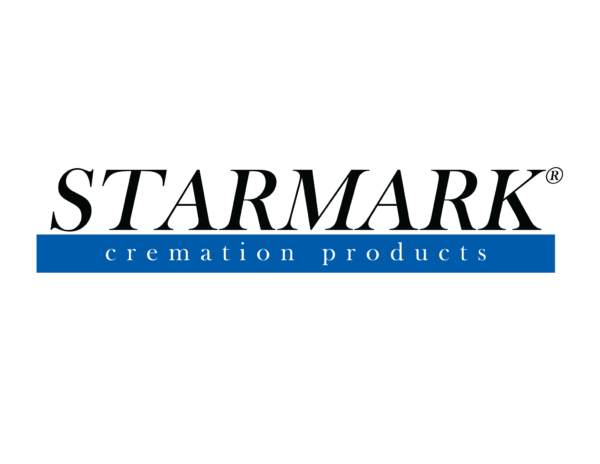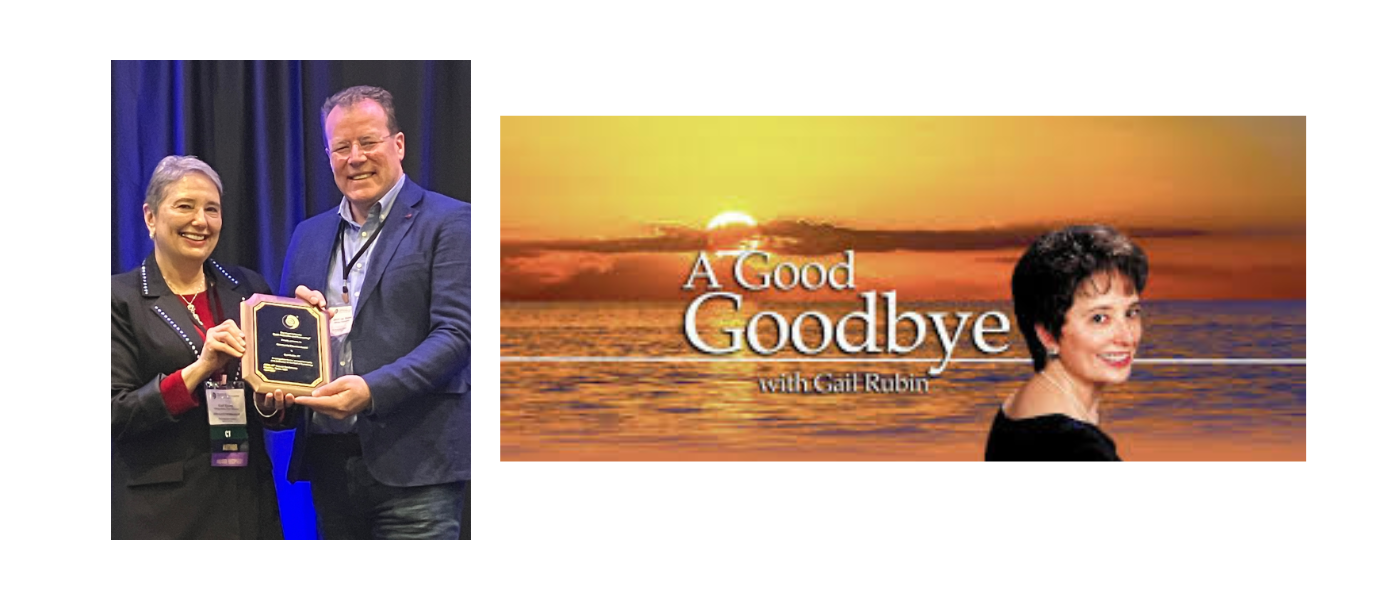Take This Reader’s Digest: Funeral Director Responds
Yesterday we posted an article from Reader’s Digest that was originally published in June 2011. The article was making rounds in online newspapers last week and we felt it was important for funeral directors to beware of what their client families could be reading.
The article is far-fetched in some of it’s statements, so to set the record straight, funeral director Steve Williams wrote this response and shared it with his community through his funeral home’s Facebook Page.
Steve emailed us his post and gave permission for us to share.
From funeral director Steve Williams:
In 2011, Reader’s Digest ran an article on how funeral directors try to take advantage of you and your check book. I’m going to copy each of the 22 suggestions, and the comment on each one of them. My comments will be prefaced with an *. This is lengthy, but well worth the read if you want to hear the facts from a person who does this on a daily basis.
Read the money-saving secrets funeral directors from across the country aren’t taking to the grave with these insider tips for planning a funeral.
Original Reader’s Digest Article By: Michelle Crouch from Reader’s Digest Magazine | June/July 2011
1.Go ahead and plan your funeral, but think twice before paying in advance. You risk losing everything if the funeral home goes out of business. Instead, keep your money in a pay-on-death account at your bank.
* This is why you need to ask questions and take copies of everything. At my funeral home, I give you a contract, that clearly states, this insurance policy or annuity (a funeral escrow, if you will), is transferable to any funeral home in the country, for any reason.
2. If you or your spouse is an honorably discharged veteran, burial is free at a Veterans Affairs National Cemetery. This includes the grave, vault, opening and closing, marker, and setting fee. Many State Veterans Cemeteries offer free burial for veterans and, often, spouses
* 100% true, and we are happy to discuss this option with anybody.
3. You can buy caskets that are just as nice as the ones in my showroom for thousands of dollars less online from Walmart, Costco, or straight from a manufacturer.
* True, you can purchase a casket online and from these places, but I challenge the statement that they are thousands of dollars less. Further, our caskets are made and delivered from Batesville, IN…buy one online, and there’s a very good chance it came from China. Furthermore, if I make arrangements today, and the family wants the viewing tomorrow, will their “cheap” casket be here in time?
4. On a budget or concerned about the environment? Consider a rental casket. The body stays inside the casket in a thick cardboard container, which is then removed for burial or cremation.
* We offer and use the “rental casket” for viewings in which cremation will follow. This is not often, if ever, utilized for burial. I would have a hard time carrying a cardboard box to the grave.
5. Running a funeral home without a refrigerated holding room is like running a restaurant without a walk-in cooler. But many funeral homes don’t offer one because they want you to pay for the more costly option: embalming. Most bodies can be presented very nicely without it if you have the viewing within a few days of death.
* Not offering on site refrigeration has nothing to do with “wanting” to charge more. I couldn’t tell you the last time I charged a family for “refrigeration”. Most funeral home’s do not have such accommodations because of space limitations. This is a ridiculous statement by Reader’s Digest.
6. Some hard-sell phrases to be wary of: “Given your position in the community …,” “I’m sure you want what’s best for your mother,” and “Your mother had excellent taste. When she made arrangements for Aunt Nellie, this is what she chose.”
*I think they got this one from watching too many funeral shows on TV…I heard that a lot in the HBO series “Six Feet Under”. My main concern is that my families are satisfied with what I CAN DO FOR THEM, not which casket they choose.
7. “Protective” caskets with a rubber gasket? They don’t stop decomposition. In fact, the moisture and gases they trap inside have caused caskets to explode.
* I never tell my families that a casket is protective or not. I do not believe in that and agree with this statement (minus the exploding part). The vault, however, can be water resistant if they choose (or not). There are no laws in PA regulating this, and it’s simply for the family’s peace of mind.
8. If there’s no low-cost casket in the display room, ask to see one anyway. Some funeral homes hide them in the basement or the boiler room.
*Maybe some funeral homes do this, I don’t know? But this is absurd in my eyes. ALL our casket offerings are on full display. Again, I’m not concerned with what casket a family chooses.
9. Ask the crematory to return the ashes in a plain metal or plastic container — not one stamped temporary container. That’s just a sleazy tactic to get you to purchase a more expensive urn.
* Sleazy? Did they just call me sleazy???? I have no sales tactics. I can’t stress enough, I’m not a salesman, I provide a service. We do, however, have to return the cremains “ashes” in “something”….we use a gold colored tin that we do not charge extra for, and there’s no stamping on it.
10. Shop around. Prices at funeral homes vary wildly, with direct cremation costing $500 at one funeral home and $3,000 down the street. (Federal law requires that prices be provided over the phone.)
* Couldn’t agree more with this one. So what’s the difference? I give everyone a price book, which contains all the legal GPL wording. There’s a page that describes our “cremation standards of care”. We are fully aware that our prices are higher than our competitors, but we also put a little more into our services, which are described. If low price, and direct disposal of the body are all you are concerned about, then yes, the low cost funeral homes and societies are probably better for you.
11. We remove pacemakers because the batteries damage our crematories.
*Pacemakers will explode under the intense heat of a retort. Part of our written cremation authorization that the family signs, specifically gives us permission to remove the pacemaker. It’s a very quick, easy procedure.
12. If I try to sell you a package that I say will save you money, ask for the individual price list anyway. Our packages often include services you don’t want or need.
* I’ve never been a fan of “packages with discounts”. For ease of explaining our services and charges, I add up all the itemized options, and present them as one charge. The family is more than welcome, and encouraged to go through line by line and have me explain everything if they chose, and deduct anything they do not wish to have.
13. Yes, technically I am an undertaker or a mortician. But doesn’t funeral director have a nicer ring to it?
* Frankly, I don’t care what you call me. I actually like the term mortician. To me, a funeral director sounds like one who “directs” a funeral. I consider myself an expert embalmer, prepare of human remains, and go to person to help and guide the grieving family through their process. Anybody can put on a suit, open the door, and guide them to the guest book down the hall.
14. Sure, you can store ashes in an urn or scatter them somewhere special, but nowadays you can also have them crushed into a real diamond, integrated into an underwater coral reef, or blasted into space.
* OK, isn’t this article titled “money saving secrets”? I challenge anybody to get pricing for these “non funeral home” options, and compare them to the cost of an average urn. This is what I call, the “DUH factor”.
15. It’s usually less expensive if the body is not present for the funeral.
* Again, I am trained and licensed to prepare and care for human remains, so….yes it would cost less if there is not a body present. It’s all what the family puts their value on. Many grief experts would concur that the visual “viewing” of the body is healthy and helpful.
16. If the deceased’s favorite outfit is a size too small or a size too big, bring it to us anyway. Part of our job is making the clothes lie perfectly.
* I think after #12, this author started grabbing for anything. Yes, this is true, but I don’t really see how this fits into this article.
17. If I ask you for a photograph of the deceased to help me prepare the body, I don’t mean her honeymoon picture from decades ago.
* See #16
18. That may be real gold in your loved one’s dental fillings or crowns, but don’t ask me to remove them for you.
*I’ve honestly never had this request, but if I did, I would probably consult with a dentist.
19. Never trust a funeral director who says, “This is the last thing you can do for your loved one.”
*The author continues to grab at straws, this is basically the same comment as #6
20. You don’t need to spend money to have a meaningful service. Consider a potluck at the widow’s home or an informal ceremony at a favorite park, and ask survivors to tell stories or read poetry.
* Again, see #15, they really should have stopped this list at #12.
21. Always bring another person when you meet with me, ideally someone who’s not as emotionally attached to the deceased.
* I couldn’t agree more, this is the best advise they’ve given so far, and it should have been listed as #1.




